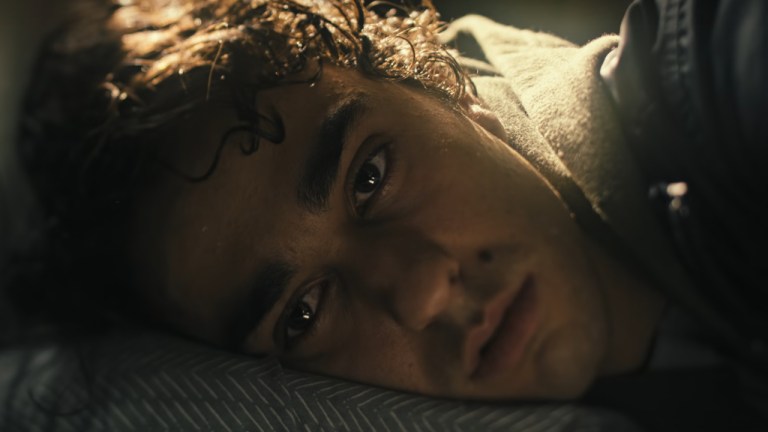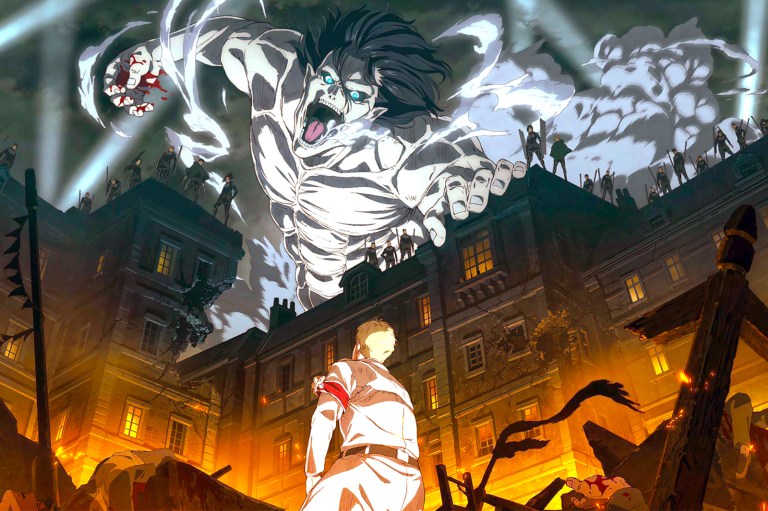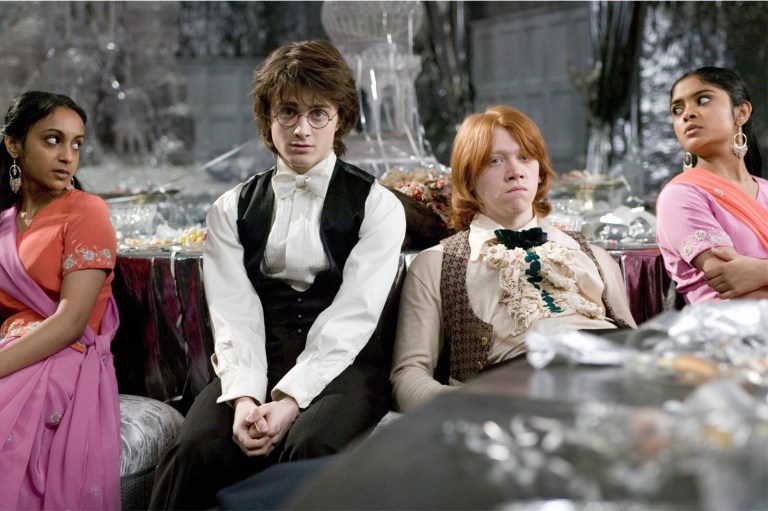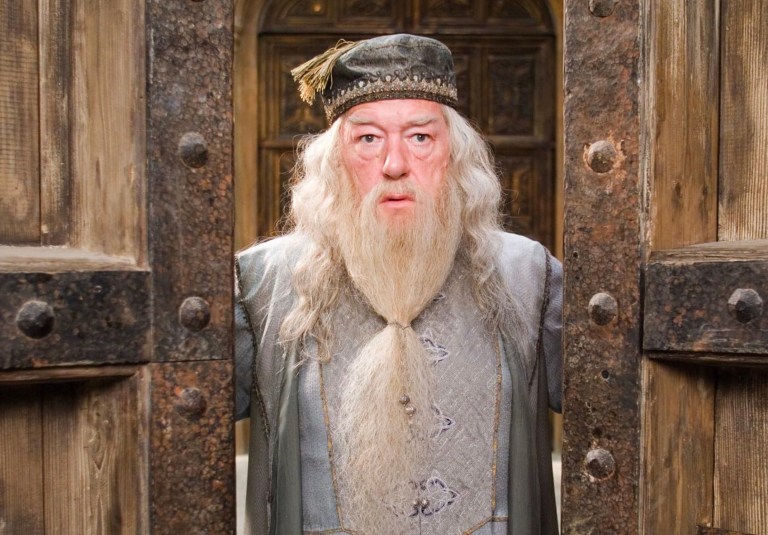
I Can’t Believe Sarah Died This Way
By ![]() Chris Slater
Chris Slater
One of the moments that changed my relationship with my current girlfriend was the day she asked if I wanted to attend a play with her. I guess she wasn’t sure I would be down with it, so she asked tentatively. She was pleasantly surprised when I responded positively. And that became a thing for us.
In November of 2013, we attended a presentation of “The Laramie Project,” a play about Matthew Shepard’s death. For those who don’t remember, Matthew Shepard was a gay man living in small-town America who was savagely beaten and left to die tied to a fence, just because of his sexualty. I’m old enough to remember hearing about it in the news, but young enough at the time to not yet know the seriousness of the situation.
One of the main themes of “The Laramie Project” deals with the aftermath of Shepard’s death. It tries to look at what will happen in the years following his murder. A promising youth was murdered for no reason before he could offer any serious type of change in this world. A life taken too young. A wave of emotion hit me during this play, but not all of it was for Matthew Shepard.
Near the end of the play, I thought of a girl who hadn’t crossed my mind in years. I felt horrible for forgetting her. I hadn’t thought of Sarah Terry in years. I first met her in the tenth grade. I had just started a new life and new school in Princeton, WV, and she was one of the first people I talked to. Her desk was next to mine in our science class.
The tenth grade was most important for me because of Kelly Goodrich. I met her one day in September of that year and we instantly clicked. She became my first best friend, my first girlfriend, the first girl I held hands with, the first girl I kissed, basically the first everything you associate with being a first.
One day between when Kelly and I met and we started dating, the two of us were sitting in the cafeteria during lunch. Sarah Terry randomly walks up and sits down. She starts talking to Kelly. Afterward, Kelly looks at me. “Chris, this is Sara.” Sara and I laugh. I look at Kelly. “We already know each other.”
Sarah was a pretty girl. Long blond hair. I’d say she was somewhere around 5’2” or so. She was a little shorter than me. I liked her; I enjoyed interacting with her during science class. She and Kelly were childhood friends. Sarah was the first girl I ever slow-danced with. I showed up to the dance hoping to see Kelly there, but she had not shown up. I even wore my fancy blue and black dress shirt. My friend Dave especially loved that shirt.
Everybody paired up and it was just me and Sarah left. She asked me to dance and I awkwardly barely touched her waist as she touched my shoulders. A guy next to us – I think his name was Josh – said to me, “What are you doing?” and pushed us together. The most awkward moment of my life then happened: “Oh my God, her boob just touched me. Did she notice? Does she hate me? What do I do?” She was cool with the moment. She asked me if I liked Kelly. I was still unsure what to think in a situation like that, so I gave a nonchalant, “I think she’s okay.”
When you’re 15, 16, looking back at a childhood friend is a weird thing. With a decade having passed to examine things, it’s easier to see that they were growing apart and it’s easier to understand why. But, at the time, Kelly and I talked a little about how different Sarah was becoming and how it was affecting her friendship.
A 16-year-old girl is well on her way to becoming a woman. It’s a tricky time for some people, as they have assumed the full woman form, but still have the childhood innocence. Kelly wasn’t too sure of what was happening, but I was a 16-year-old boy full of hormones and impure thoughts and I could clearly see how Sarah was now dressing and starting to act. She was looking for attention, and she was getting it.
From talking to Kelly over the years, I’ve learned that Sarah didn’t have a great family life. A tumultuous childhood will often lead to a turbulent adulthood. She began that switch around 16, 17 years old. She started looking for that attention she wasn’t getting from her home. I saw less and less of her as high school progressed. I honestly have no clue if she graduated from high school with us. I know she never went to college with us.
A couple times a year or so after high school I would run into her. She worked at Little Caesars and gave me free breadsticks one time. Kelly and I saw her in the Arby’s drive-thru once and caught up with her for a few minutes. This was back before Facebook became mainstream and texting became the norm. This was when you had to make a concerted effort to keep up with your friends; we didn’t make that effort and thus I only saw her a couple times a year.
My fifth year of college, I was sitting in my dorm room, 216 of Wooddell Hall. I received a text from Kelly. It simply read, “Sarah T died.” Not thinking, I texted back my first response: “Who?” I then stared at my phone for a second trying to think. How many people named Sarah do I know? How many people named Sarah does Kelly know? Who named Sarah would Kelly want to tell me about if she died? Sarah T? T? It hit me: Sarah Terry! A moment later, Kelly’s reply confirmed it.
I tried to wrap my mind around things. How does a 22-year-old die? Car wreck? Drug overdose? What? How? Why?
As the days passed, the truth came out. And it was chilling and a harsh reality check. Sarah was married to her second husband. They were estranged. She met him at a seedy hotel at the seedy part of town. An argument ensued. He wrapped his hands around her throat and strangled her until she died. He hid her body in a garbage bag and threw her in a ditch. After a couple weeks, his guilty conscience got the best of him and he confessed to the police.
What did she mean to the world? Matthew Shepard died and it helped spark a shift in how America views the LGBT community. Sarah Terry died six years ago. What did her death do? Honestly, nothing. Sarah Terry died and nothing happened. Nobody outside her immediate family and friends cared.
Nobody in the local community used her death as a springboard to help educate young people about the dangers of domestic violence. Nobody used this as an example of how you should pay attention in school and make something of yourself. The harsh reality of it was that she was nothing in a shitty town. The tragedy happened, people talked about it for a few days, then they moved on to whatever else happened next.
The lesson here? Don’t take anything for granted. You never know what will happen to a friend. He or she could vanish at any point and you may never see that person again. Value your friendships and don’t let them fade away. Everybody is important in their own way, even Sarah Terry, who has seemingly disappeared from memory over the years. Don’t forget her. Don’t forget the people in your life. ![]()











